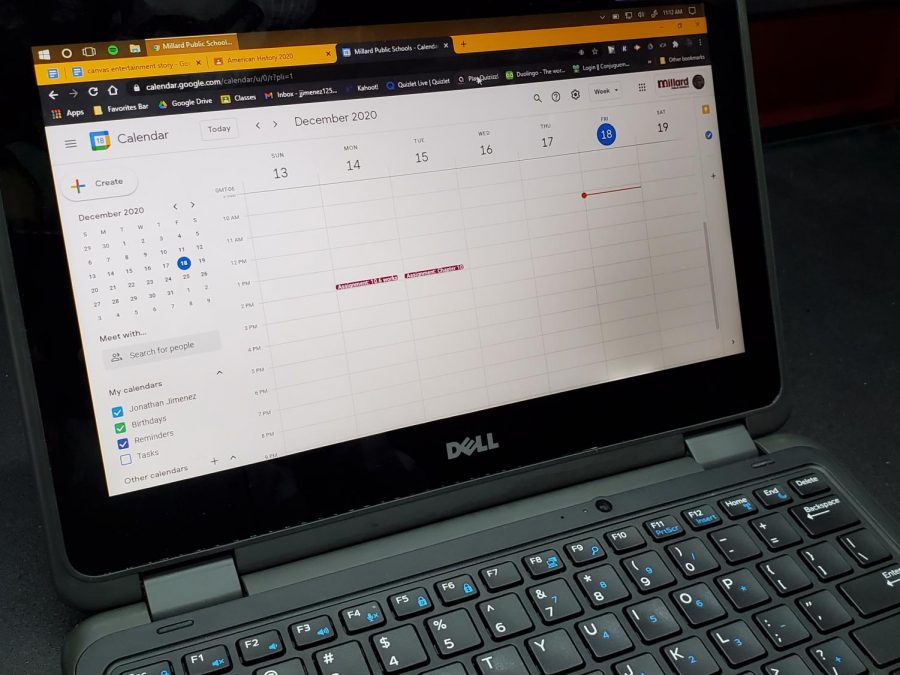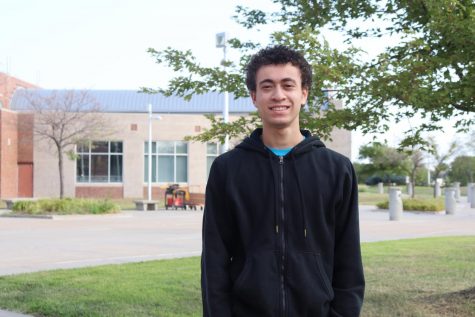Shortening the stressful school day
Students spend far too much time learning and need more sleep
According to the Center of Public Education, most states require students to be in school for 175 to 180 days, which is higher than most highly developed countries. Although, these same countries have higher test scores than the US.
December 22, 2020
Every weekday, students in the U.S. have to go to school for six to eight hours until they finish high school. According to an Ed100 article, the average American student spends about 1,000 hours a year in school. If you multiply that by the grade levels they go through (kindergarten to 12th grade), this adds up to 13,000 hours. School days should be shortened so students aren’t spending so much time learning subjects they won’t apply to their work life.
One way to make this happen is to have school start later and end at the same time as usual. An American Academy of Pediatrics article details how during puberty, adolescents experience a sleep-wake “phase delay” phenomenon. This entails later sleep and wake times. This is caused by two factors: delayed release of melatonin and a slower sleep drive.
This change can offset a teen’s sleep and wake times by two hours, which can make a significant difference in terms of the quality of sleep. In response to this, adolescents tend to catch up on sleep on the weekends, which can worsen their circadian rhythms. Their bodies will be programmed to sleep late, which is a difficult habit to break. If school was to start later, teens wouldn’t have to catch up on sleep over the weekend since they’d be getting a more proper amount of sleep.
In the same article, statistics from a National Sleep Foundation poll reported that 59% of sixth through eighth graders get less than the recommended 8.5 to 9.5 hours of sleep. This percentage is even worse for high schoolers at 87%. This lack of sleep negatively affects students’ moods, behaviours and overall quality of life. Additionally, the poll stated that 28% of students reported falling asleep during class at least once a week.
This lack of sleep and falling asleep during class makes it more difficult to learn. Shortening school days so school starts later could help with this problem. Admittedly, a part of this problem is how teens manage their time, but since fixing this has clearly proven to be a difficult task, fitting the school days around their later bedtimes would be beneficial.
I believe if school is meant to prepare students for life, then the start time should revolve more around what teens deem appropriate. Of course it’s also important for teachers and other staff members to have a say in a good start time as well, and this could be done by starting just an hour later. If schools would cut out all the busy work and just keep what’s essential, this could work in everyone’s favor. Students and staff alike could use this time to get more sleep instead of waking up groggy and unmotivated. A Walden University article says teachers spend more time in the classroom than other developed nations, many that have a higher student achievement. This makes it feel like we are dedicating too much to school.
Students should be offered a more lenient schedule to their already stressful lives. A shorter school day would allow students to give themselves more time to relax, therefore helping their stress levels. Also, the extra sleep they could get would better prepare them for the next school day. If students are to improve their test scores and college readiness, incorporating these ideas into daily school life could make the days a better time to grow and improve their work. Schools across the US need to take action and make change on behalf of their students.







